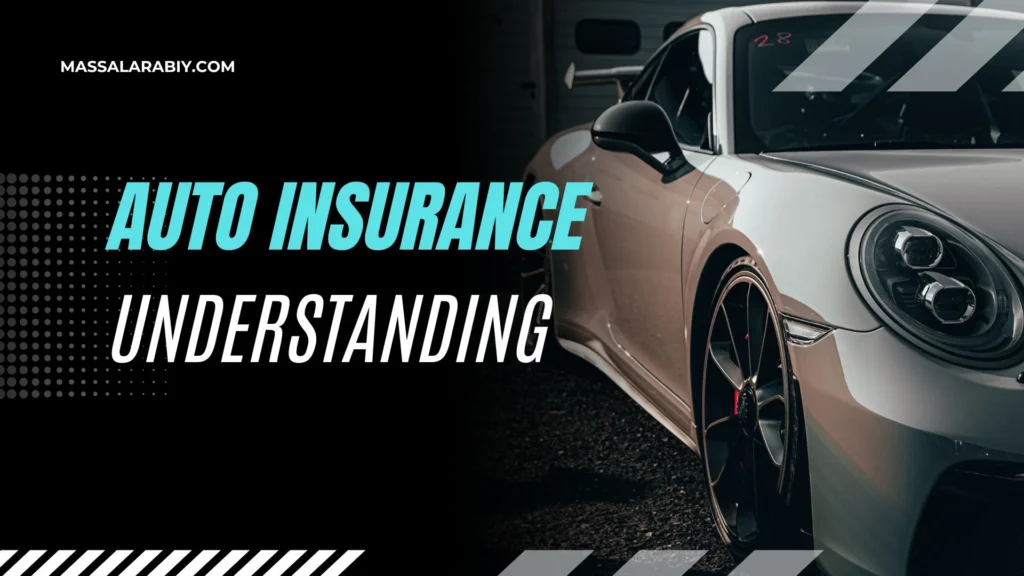According to the National Association of Insurance Commissioners, the average auto insurance expenditure across the country rose by 6.1 percent, reaching $1,127 in 2022, up from $1,062 in 2021. In 2022, the highest average expenditures were recorded in Florida at $1,625, followed by Louisiana at $1,558, and New York at $1,549.
According to AAA’s 2022 study, “Your Driving Costs,” the average expense for owning and operating a 2022 model vehicle is $10,728 annually, assuming a mileage of 15,000 miles per year. For medium sedans, the average cost of full-coverage insurance is $1,694, while medium SUVs average $1,529. Overall, the average insurance cost for all vehicle types, including pickups and hybrid or electric models, is $1,588. These estimates are based on a full coverage policy for drivers under 65 years old, with over six years of driving experience, no accident history, and residing in suburban or urban areas. These statistics are from: iii.
Auto insurance may appear complicated, but it is a crucial financial safeguard for every driver. Whether you’re commuting, embarking on a road trip, or simply parking at home, grasping the fundamentals of auto insurance can help you save money, reduce stress, and avoid legal issues. In this detailed guide, we cover everything you need to know—from essential definitions and coverage types to the latest cost statistics and effective strategies for lowering your premiums. Whether you’re a first-time car owner or considering a change in providers, this article will empower you to make informed decisions with confidence.
Table of Contents

Definition Of Auto Insurance:
Car insurance is a legal agreement between you and an insurance company. In this contract, you commit to paying a premium in return for financial protection against losses from accidents, theft, or damage to your vehicle.
Coverage can include a variety of expenses, such as repairs to your car or someone else’s, property damage, medical bills, lost wages, and even funeral costs, depending on the policy you select. While all U.S. states, except New Hampshire, mandate a minimum level of liability coverage, you can tailor your policy to fit your specific needs, driving history, type of vehicle, and budget. Policies generally last from six months to a year, and having a clear understanding of how they work can significantly impact your ability to choose the best coverage for your situation. Read More: Auto Insurance.
The Importance Of Car Insurance:
If you own a car, even if you don’t use it, the law requires you to have at least third-party insurance. This type of insurance covers any damage or injury you may cause to other people, vehicles, property, or animals. However, if you have officially registered your car as off the road , this requirement does not apply.
It’s important to note that basic third-party coverage does not protect your own vehicle from theft or damage. Additionally, driving without insurance can result in severe penalties, including fines, points on your license, disqualification, or even the seizure of your car. Having a Auto insurance policy provides financial protection against vehicle damage and bodily injury. Here are some key reasons to consider having a motor insurance plan:

- Legal Requirement: According to the Motor Vehicles Act, obtaining third-party insurance is mandatory and must not be ignored. Anyone caught driving a vehicle without this insurance should be prepared for potential legal consequences.
- Coverage in the Event of Death: The loss of life due to an accident is one of the most distressing outcomes. When the primary breadwinner of a family dies in such an incident, it can lead to significant financial strain for the family and their dependents. A payout option included in a motor insurance policy can help ensure that the family remains financially stable and can manage their daily expenses. Be sure to review the terms and conditions of the insurance policy, as these can differ between insurers.
- Financial Security: A motor insurance policy ensures you won’t face financial hardship. It offers comprehensive protection and serves as a financial safety net during times of crisis.
- Third-Party Liability: This coverage addresses any liabilities that may arise from damages caused by your vehicle to others. The insurer will cover the medical expenses of the affected third party. Third-party liability insurance protects you from potential legal actions.
Types Of Auto Insurance:
The most prominent types of car insurance are:
Fully comprehensive:
Comprehensive car insurance provides the highest level of coverage available. It not only protects others, their vehicles, and property in the event of an accident, but also covers damage to your own car from incidents such as accidents, theft, fire, and vandalism. Additionally, it may include medical expenses, legal fees, and coverage for accidental damage. Some policies even allow you to drive other people’s cars with their permission, typically under basic third-party coverage, so it’s important to review the details carefully. Despite offering extensive protection, comprehensive insurance is not always the most expensive option, making it a wise choice for complete peace of mind.
Third party Auto Insurance:
Third-party car insurance is the most basic level of cover you’re legally required to have—it’s designed to protect other people, not you. So, if you cause an accident that results in injury or damage to someone else’s vehicle, property, or even a person, your insurer will cover their costs, but you won’t get anything for damage to your own car or if it gets stolen.
It’s mandatory in many countries, like India, just to be allowed to drive on public roads. And while you might think third-party cover is always the cheapest option, that’s not necessarily true—it can sometimes cost more than a comprehensive policy, especially if you don’t have a no-claims bonus, live in a high-risk area, or your car isn’t worth much and you’d rather just replace it if something happened. So it’s really about weighing the risks and figuring out what works best for your situation.
Third-party Fire and Theft:
Third-party fire and theft insurance offers more protection than basic third-party coverage. It safeguards you against damage to someone else’s property or injuries to others, while also covering theft or fire damage to your vehicle. However, it does not cover damages from accidents. Additionally, this type of insurance may not always be less expensive than fully comprehensive coverage. It can be a suitable choice if your car is relatively inexpensive to repair and you don’t drive frequently. Just be sure to compare prices before making a decision.
Auto Insurance Quote:

Considering Auto Insurance? The first thing you’ll likely encounter is an auto insurance quote. It may sound formal, but it’s simply an estimate of your potential insurance costs based on factors like your vehicle, driving history, location, and the type of coverage you want.
Think of it as asking, “What would it cost to insure this car?” The insurance company responds with a figure.
Why is this important? Obtaining quotes from various companies allows you to compare your options. You want to avoid overpaying or settling for inadequate coverage. A quick quote provides a clear overview, enabling you to make an informed decision without any guesswork.
The best part? Getting a quote is incredibly easy—whether online, over the phone, or through an app. It only takes a few minutes and could save you a significant amount in the long run.
Recent statistics on car insurance (2024–2025):
Average Cost of Comprehensive Insurance in the United States (2025):
- In 2025, the average monthly cost of comprehensive car insurance was around $175, which totals about $2,100 annually.
- This represents a 7.5% increase from 2024, marking a notable slowdown compared to the 16.5% rise in 2024 and the 12% increase in 2023.
- Nevada, Florida, and Michigan rank as some of the most expensive states for car insurance in the nation.
States with the highest and lowest insurance costs (2024):
- Michigan recorded the highest average monthly cost for comprehensive car insurance at $386, which is 134% above the national average.
- In contrast, Maine boasted one of the lowest costs, with an average annual expense of around $941.
Save by comparing offers:
- A study showed that shopping and comparing insurance quotes can save consumers up to $1,370 annually, with an average savings of 56.3%.
Increase in car insurance complaints (2024):
- In 2024, car insurance complaints accounted for 35.3% of total insurance complaints, an increase of 31.6% compared to 2021.
Tips to Reduce Insurance Costs:
Here are additional ways to reduce your insurance expenses.

- Before you buy a car, compare insurance costs.
- Ask for higher deductibles.
- Reduce coverage on older cars.
- Buy your homeowners and auto coverage from the same insurer.
- Maintain a good credit record.
- Take advantage of low mileage discounts.
- Ask about group insurance.
- Seek out other discounts.
FAQs:
What is the meaning of auto insurance?
Auto insurance is a contract between you and an insurance company that helps protect you financially if your car is involved in an accident, stolen, or damaged. In exchange for paying a monthly or yearly premium, the insurance company agrees to cover certain costs—like repairs, medical bills, or damage to other people’s property—depending on the type of coverage you choose. It’s basically a safety net that helps you avoid huge out-of-pocket expenses if something unexpected happens while you’re driving.
What are the top 3 types of auto insurance?
Liability Insurance: Covers damage or injuries you cause to others.
Collision Insurance: Covers damage to your car from accidents.
Comprehensive Insurance: Covers non-accident events like theft, fire, or natural disasters.
What is auto and general insurance?
Auto insurance covers your vehicle against accidents, theft, and damages.
General insurance is a broader term that includes all non-life insurance—like home, travel, health (non-life), and auto insurance.
what is the main purpose of having auto insurance?
The main purpose of auto insurance is to protect you financially in case of accidents, theft, or damage. It helps cover repair costs, medical bills, and legal fees—so you don’t have to pay everything out of pocket.
how much is auto insurance?
The cost of auto insurance depends on several factors—like your age, driving history, location, car type, and the coverage you choose. On average, it can range from $100 to $200 per month, but it could be more or less based on your personal situation.